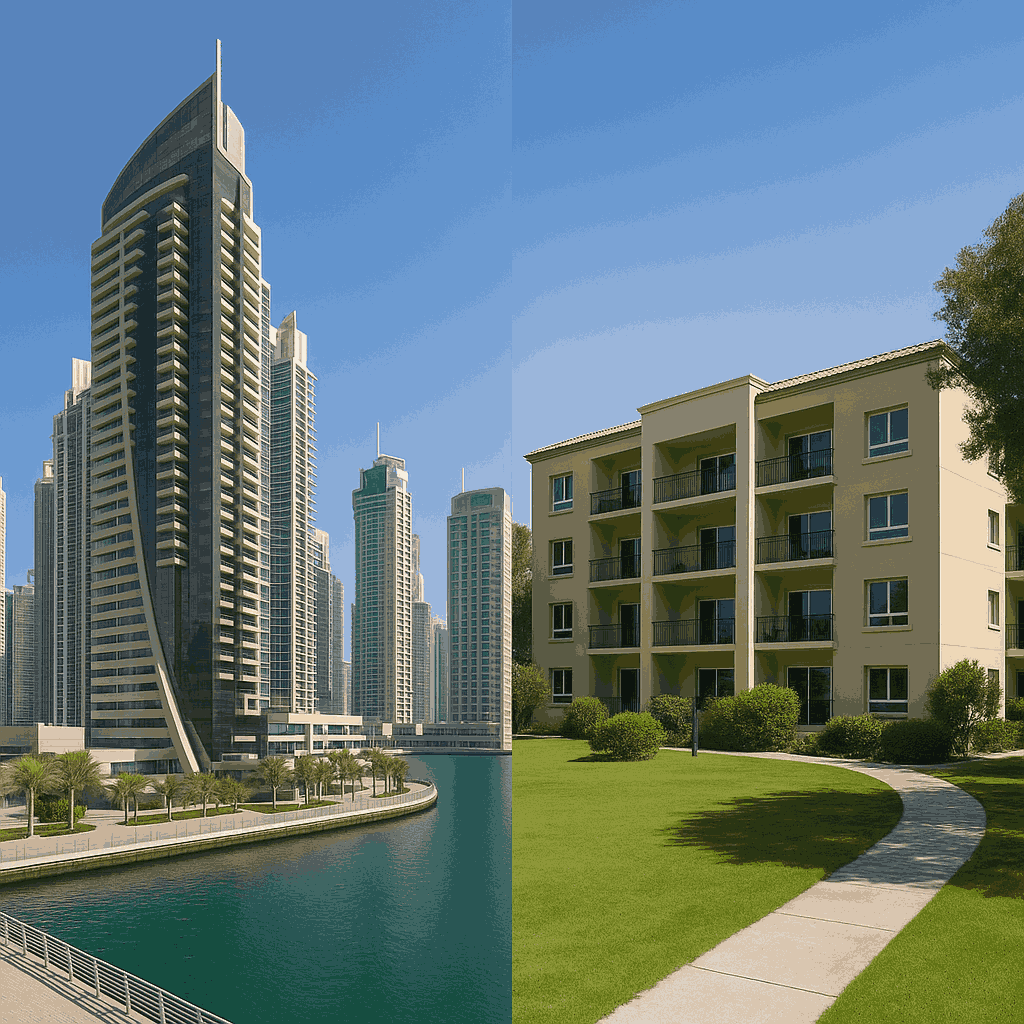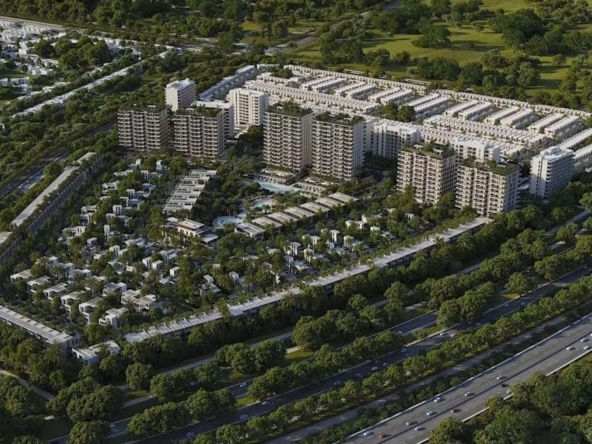The UAE real estate sector is globally recognized for its luxury developments, investor-friendly policies, and high returns. However, one of the most crucial aspects for any buyer or investor to understand is the difference between freehold and leasehold property ownership. This distinction impacts ownership rights, resale potential, and long-term value—all vital considerations when investing in Dubai, Abu Dhabi, or other Emirates.
What is Freehold Property in the UAE?
Definition of Freehold
Freehold ownership gives the buyer complete legal ownership of the property and the land it stands on, indefinitely. In the UAE, this form of ownership was introduced primarily to encourage foreign investment, particularly in designated zones known as freehold areas.
Benefits of Freehold Ownership
-
Full Ownership Rights: The owner has perpetual rights to the property and the land.
-
No Time Limit: Unlike leasehold, freehold doesn’t expire after a set number of years.
-
Inheritance Rights: Properties can be passed to heirs without restriction.
-
Freedom to Sell or Rent: Owners have full liberty to sell, lease, or occupy the property as desired.
-
Investor Attraction: Ideal for long-term capital appreciation and rental yields.
Popular Freehold Areas in the UAE
-
Dubai: Downtown Dubai, Dubai Marina, Palm Jumeirah, JVC, Business Bay
-
Abu Dhabi: Yas Island, Saadiyat Island, Reem Island
These zones are designated to allow expatriates and foreigners to buy, sell, and lease property without restrictions.
What is Leasehold Property in the UAE?
Definition of Leasehold
A leasehold property means that the buyer gets the right to occupy and use the property for a defined period, usually up to 99 years, but not the land it sits on. After the lease expires, ownership reverts to the freeholder (landowner).
Features of Leasehold Ownership
-
Time-Limited Use: Typically 10 to 99 years, after which ownership reverts.
-
Land Ownership Retained: The freeholder retains legal ownership of the land.
-
Limited Control: Restrictions on major alterations or redevelopment.
-
Lower Upfront Cost: Often more affordable than freehold.
Popular Leasehold Areas in the UAE
While most leasehold transactions happen in non-freehold areas, some Emirates like Sharjah predominantly offer leasehold properties to expatriates, especially for long durations like 100-year leases.
Freehold vs. Leasehold: A Comparative Table
| Feature | Freehold | Leasehold |
|---|---|---|
| Ownership | Full ownership of land and property | Right to use for a limited term |
| Duration | Indefinite | 10–99 years |
| Inheritance | Fully transferable | May be subject to lease terms |
| Control | Full control | Limited by lease conditions |
| Cost | Higher upfront | Lower upfront, may incur ground rent |
| Ideal For | Long-term investment | Medium-term residence or commercial use |
Legal Framework for Foreign Property Ownership in the UAE
Dubai’s Freehold Law – Law No. 7 of 2006
Dubai was the first emirate to allow full freehold ownership to foreigners. Under Law No. 7 of 2006, non-GCC nationals can own property in designated freehold zones, with Dubai Land Department (DLD) overseeing all transactions.
Abu Dhabi and Other Emirates
Abu Dhabi has gradually expanded freehold rights. As of 2020, foreigners can now own freehold properties in designated investment zones, like Al Maryah Island, Saadiyat Island, and more.
Sharjah permits only leasehold to non-GCC nationals, typically for 100 years, through developer agreements.
Advantages and Disadvantages of Freehold Properties
Pros
-
Long-term Security: Permanent ownership is a strong asset.
-
Higher Resale Value: More attractive in the secondary market.
-
Flexibility: Renovations and changes allowed without approvals.
Cons
-
Higher Entry Cost: Purchase prices are usually higher.
-
Ongoing Maintenance Costs: Responsibility for all upkeep lies with the owner.
-
Area Restrictions: Only specific zones offer freehold.
Advantages and Disadvantages of Leasehold Properties
Pros
-
Lower Initial Cost: Often cheaper than freehold units.
-
Ideal for Short-Term Use: Perfect for expats on contracts.
-
Developer Maintenance: Often maintained by the freeholder.
Cons
-
Limited Tenure: Ownership is temporary.
-
Restrictions on Use: Modifications often require permissions.
-
Renewal Uncertainty: Lease renewal terms can be unclear.
Implications for Investors and End Users
For Investors
-
Freehold: Offers better capital appreciation and rental income.
-
Leasehold: Lower cost entry but less attractive for long-term ROI.
For End Users
-
Freehold: Ideal for those settling in the UAE or passing property to heirs.
-
Leasehold: Suited for professionals or retirees planning short to medium-term stays.
How to Verify Property Ownership Rights in the UAE
Always perform due diligence by:
-
Checking Title Deeds with the Dubai Land Department (DLD) or respective emirate’s property authority.
-
Consulting RERA-registered agents for accurate legal advice.
-
Clarifying developer agreements if purchasing in leasehold areas.
Future Trends in UAE Property Ownership
-
Increasing Freehold Zones: More emirates are opening up areas for foreign freehold ownership.
-
Technology Integration: Digital property portals and blockchain-based title systems are improving transparency.
-
Long-Term Visas: Freehold property ownership is often linked to Golden Visa eligibility, enhancing its appeal.
Which is Right for You?
Choosing between freehold and leasehold in the UAE property market depends on:
-
Budget
-
Purpose (investment vs. living)
-
Duration of stay
-
Need for flexibility or control
Freehold is the better option for long-term investors and residents looking for full autonomy. Leasehold, meanwhile, suits expats or businesses with short-term plans or limited capital.
Conclusion: Understanding Ownership Structures Before You Buy
The decision between freehold and leasehold in the UAE real estate market is more than just a legal classification—it directly impacts your investment return, property control, and lifestyle plans. As the UAE continues to develop into a global real estate hub, understanding these ownership structures is crucial for making informed, profitable decisions.




